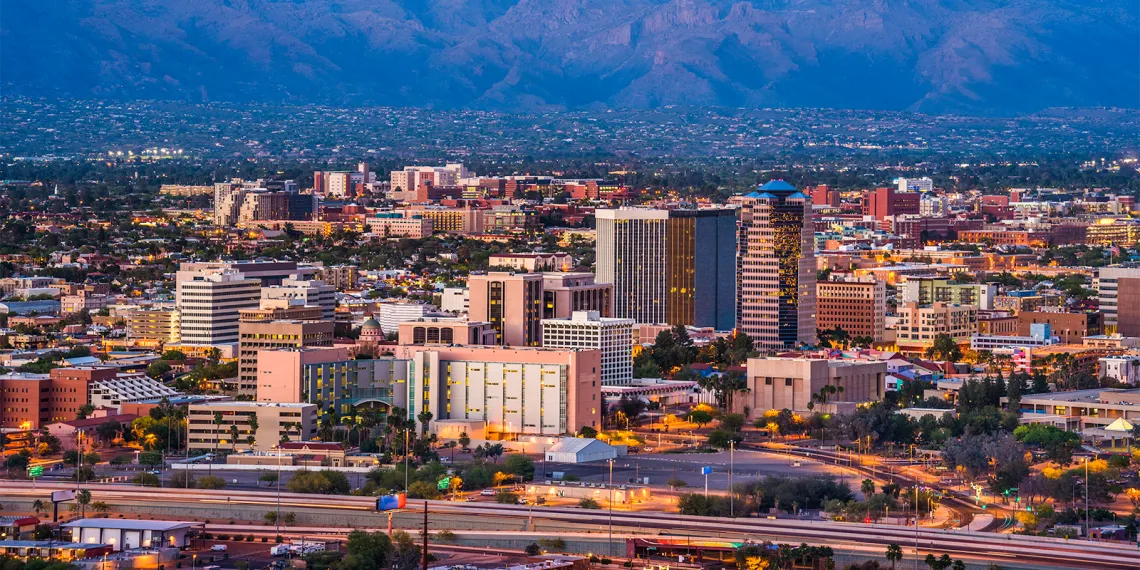International partnerships help position the Arizona-Sonora region as a tech hub.
California has Silicon Valley, New York has Silicon Alley and Tucson is gaining a reputation as Optics Alley thanks to the number of high-tech companies developing products such as cameras, sensors and lasers in the Arizona-Sonora region.
It’s not just optics companies thriving in the region. A recent report found that technology contributes $25.8 billion to the Arizona economy and wages in the technology industry are 89 percent higher than the median national average, which is no surprise to Carol Stewart, associate vice president of Tech Parks Arizona.
“The Tech Park is the link between three academic institutions: University of Arizona, National Autonomous University of Mexico (UNAM) and Ben-Gurion University of the Negev in Israel, to create this technology traffic between the countries and provide new market access for these projects once they go beyond the commercialization phase,” Stewart explains.
The Tech Park, which houses 50 companies that employ almost 6,000 people, is a significant economic driver for the region, generating an economic impact of $2 billion statewide. Several high-tech tenants are focused on disrupting the optics industry, which puts the Tech Park at the heart of the growing Optics Valley in Tucson.
While the Covid-19 pandemic has impacted a spectrum of industries, tech included, companies from both the Arizona-Sonora region and abroad are still looking for support to foster tech innovation in the region.
Companies from both the Arizona-Sonora region and abroad are looking for support to foster tech innovation in the region.
“Southern Arizona shares both opportunities and challenges with other regions in the world and we have best practices we can share, but we can also learn from best practices in other regions, too,” says Justin Dutram, senior director of UArizona’s Mexico Initiatives, a university-wide collective of partnerships and collaboration with institutions in Mexico. “Research and the creation of new knowledge doesn’t happen in silos; most research is connected through global networks of researchers and research centers.”
Taking Initiative
Rather than wait for companies to reach out for resources and support through Tech Parks, Center for Innovation, Campus Research Corporation and Tech Launch Arizona, UArizona took the lead, launching a global partnership with other research institutions to develop commercial solutions to complex problems.
Research teams at the University of Arizona, UNAM and Ben-Gurion University of the Negev in Israel are all working on similar technologies in sectors ranging from digital healthcare and robotics to smart vehicles. The similarities in the climates in all three countries informs their research efforts, Dutram says.
“If we look at our natural environment, all three regions are dealing with water issues, sustainable agriculture and renewable energy, and the need to develop technologies around them is very important,” he adds. “Our original thought was, ‘How can we complement each other and create some new synergies that make us all stronger and create new markets for companies in each of our regions?’”
Representatives from all three universities recognized that robust opportunities for collaboration existed. After extensive conversations to gauge interest and discuss goals, the tri-national partnership kicked off with a visit to Israel in 2017 and trips Mexico and Arizona the following year.
The researchers wanted to better understand the innovation ecosystems in each nation, look at the existing research and identify projects in the tech sector that were most suitable for commercialization. Conversations about which projects to pursue and how to fund them are ongoing.
A Foundation for Innovation
Doug Hockstad, assistant vice president of Tech Launch Arizona (TLA), an office of integrated teams overseeing the commercialization of innovations to ensure technologies find meaningful applications, explains that research, both in the United States and abroad, provides significant value as a foundation for innovation.
“That is our goal,” he says. “To take the reach and innovative discoveries and find a way for them to have an impact on the region, the state and the world.”
“Over the last five years, we’ve had double digit compound annual growth in all of our major technology commercialization metrics, including invention disclosures, patent filings and issues, and the number of startups we’ve launched,” Hockstad adds. “It’s all about trying to create startups that have a strong potential for success and [with these partnerships] our goal is to focus the attention of the United States and the world on Southern Arizona as a leader in commercializing technology.”
Pursuing Global Growth
During a trip to Israel, a team from Tech Parks Arizona, which includes a business incubator, center for innovation and research park, met with representatives from 34 companies and connected with Israel-based business accelerators and venture capitalists to promote Global Advantage, their business development program to attract fast-growing tech companies to Arizona.
The visit generated a lot of buzz and several startups expressed interest in expanding to the United States. Stewart believes international companies want to establish a presence in the Arizona-Sonora region to access broader markets.
In smaller countries like Mexico and Israel, she explains, the markets are too small for companies or technologies to scale; expanding into U.S. markets provides essential access the explosive domestic market potential. Tech Parks Arizona ensures new market access for projects and partnering with UNAM and Ben-Gurion University could have a significant impact on the local startup ecosystem.
“As these inventions start to [seek commercial success], the inventors are going to start looking at their own markets and then thinking about international expansion; we provide that soft landing, that place that helps companies move past invention and into existence,” she says. “The University of Arizona is perfectly poised to work globally and be very impactful to Southern Arizona, Mexico and Israel with this project.”


